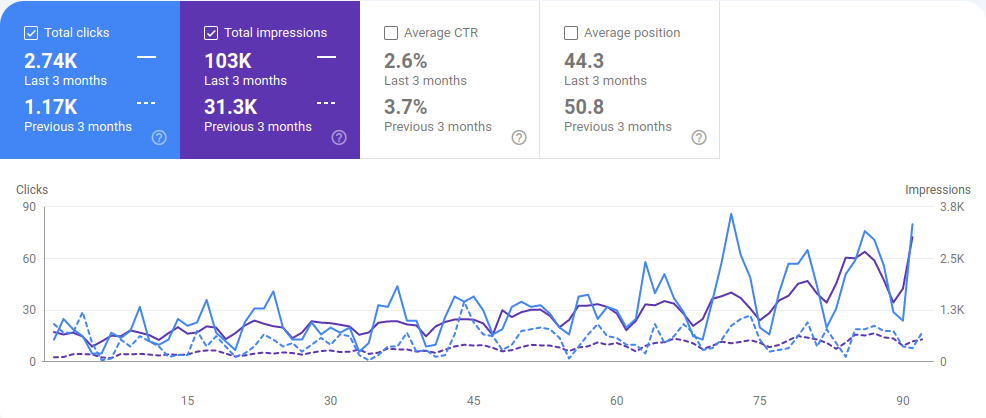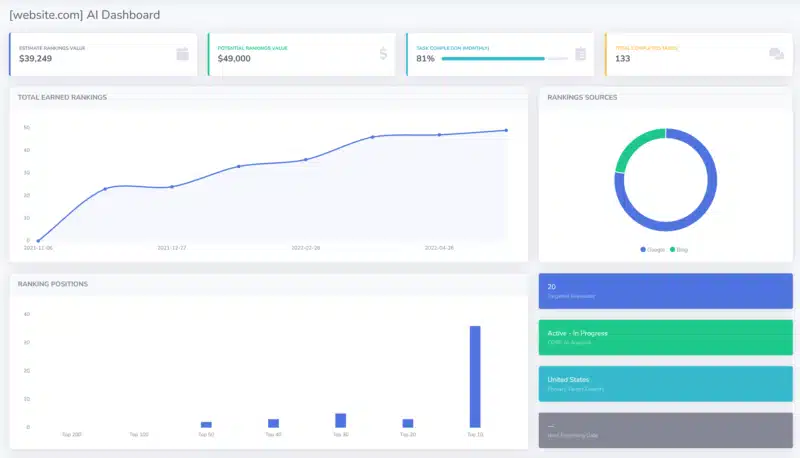Welcome to the era of SEO 2.0, where the rules of the game are evolving, and staying ahead requires embracing innovative strategies. In this comprehensive blog, we’ll explore the fascinating world of Entity-Oriented SEO, understanding the role of entities, semantic search, and practical optimization techniques. By the end, you’ll be armed with knowledge to propel your digital presence to new heights.
Entities in SEO – Beyond Keywords
Entities, in the context of SEO, are the building blocks of search engines’ understanding. These can be anything from people and places to concepts and events. For instance, in a search for “Apple,” is the user looking for the tech giant or the fruit? Recognizing and optimizing for these entities is the essence of Entity-Oriented SEO.
Example: “Java” – A Tale of Two Entities:
Consider the term “Java.” In traditional SEO, this might be associated with programming language. However, with entity-oriented thinking, the search engine must determine if the user is interested in programming, coffee, or the Indonesian island. Optimizing content to cater to these diverse intents is where entity-oriented SEO shines.
The Rise of Semantic Search
Semantic search optimization
Semantic search goes beyond the literal interpretation of keywords. It aims to understand the user’s intent and the context of the query. This shift from strings of keywords to the meaning behind them has been accelerated by advancements like Google’s BERT algorithm.
Example: “Change light bulb” – Understanding Intent:
In a pre-semantic search era, this query might have triggered results about buying light bulbs. However, with semantic understanding, the search engine discerns that the user is seeking instructions. This shift demands content that not only contains keywords but also aligns with user intent.
Unpacking Google’s BERT Algorithm
BERT’s Impact on Search:
Google’s BERT algorithm is a major player in the semantic search game. By deciphering the context of words in a search query, BERT refines results, making them more accurate and contextually relevant.
Example: “Bank” – Context Matters:
The term “bank” can refer to a financial institution, the side of a river, or a maneuver in a game. BERT helps the search engine understand the context, ensuring that a search for “bank” yields results that match the user’s intent.
Advantages of Entity-Oriented SEO
Entity-Oriented SEO offers a range of advantages that can significantly impact your online visibility and success:
Contextual Relevance:
By focusing on entities, SEO efforts become more aligned with user intent. This increased relevance ensures that your content resonates with the specific needs and interests of your audience.
Semantic Search Optimization:
Entity-oriented SEO is inherently connected to semantic search. This means search engines better understand the context and meaning behind user queries, resulting in more accurate and contextually relevant search results.
Richer Search Snippets:
Implementing schema markup, a key component of Entity-Oriented SEO, provides search engines with structured data about your content. This, in turn, enhances the chances of your site appearing in rich search snippets, providing users with more information at a glance.
Improved User Experience:
The focus on entities and semantic understanding contributes to a more intuitive and user-friendly experience. Visitors can find the information they seek more efficiently, leading to increased engagement and satisfaction.
Competitive Edge with BERT:
Google’s BERT algorithm, designed to understand the nuances of language, is a crucial aspect of Entity-Oriented SEO. Websites leveraging BERT gain a competitive edge by delivering content that aligns more closely with user expectations.
Targeted Content Strategies:
Entity-oriented SEO encourages a shift from generic content to targeted strategies centered around specific entities. This approach enables you to create content that directly addresses the diverse interests of your audience, fostering deeper connections.
Future-Proofing SEO Strategies:
As search engines continue to evolve, embracing Entity-Oriented SEO ensures that your strategies remain effective and future-proof. The focus on entities aligns with the direction of search engine advancements, keeping your website at the forefront of industry changes.
Enhanced Local SEO:
For businesses with a physical presence, Entity-Oriented SEO contributes to improved local search visibility. Optimizing for local entities, such as locations and events, ensures that your business appears prominently in relevant local searches.
Adaptability to Voice Search:
With the rise of voice-activated devices, Entity-Oriented SEO is well-suited to the natural language queries inherent in voice searches. This adaptability positions your content to thrive in the era of hands-free search interactions.
Data-Driven Decision Making:
By focusing on entities, you gain valuable insights into the preferences and interests of your audience. This data-driven approach allows for informed decision-making, enabling you to tailor your content and strategies based on user behavior and trends.

Practical Strategies for Entity-Oriented SEO
Using Schema Markup:
Schema markup is the secret weapon for entity-oriented SEO. By providing additional context to search engines, it helps them better understand your content. For example, using schema markup, a recipe page can specify ingredients, cooking time, and nutrition information, providing richer search results.
Example: Recipe Schema:
Imagine searching for a specific dish. A result with recipe schema markup might display not just the page link but also a snippet with key details like preparation time and user ratings, enhancing the user experience and increasing the likelihood of a click-through.
Entity-Centric Content Strategy:
Crafting content around entities involves understanding your audience’s interests. For a travel website, this might mean creating content around specific destinations, local attractions, and travel tips rather than generic travel-related keywords.
Example: Travel Website:
Instead of a generic article on “Traveling Tips,” an entity-centric approach might involve creating in-depth guides for specific locations, such as “The Ultimate Guide to Exploring Bali” or “Hidden Gems in Tokyo.”
Adapting to the Future of SEO
Machine Learning and SEO:
As search engines become more sophisticated, machine learning plays a pivotal role. Algorithms analyze user behavior, refine search results, and even predict future trends. Staying informed about these developments is crucial for sustained SEO success.
Example: Personalized Search:
Google’s personalized search results are a prime example of machine learning in action. User behavior, location, and past searches influence the results, providing a tailored experience for each individual.
Emerging Trends in Entity-Oriented SEO:
Voice Search Optimization:
With the rise of voice-activated devices, optimizing for conversational queries becomes paramount. Content that answers natural language questions aligns with the way users interact with voice search.
AI-Driven Strategies:
Artificial Intelligence is increasingly shaping SEO strategies. AI tools can analyze vast datasets, predict user behavior, and automate routine tasks, freeing up time for more strategic efforts.

Conclusion:
In this exploration of Entity-Oriented SEO, we’ve journeyed from the fundamentals of entities to the intricacies of semantic search and practical optimization strategies. The examples provided illustrate the shift from traditional keyword-focused approaches to a more nuanced, context-aware methodology.
As you navigate the evolving landscape of SEO, remember that embracing entity-oriented thinking isn’t just a trend; it’s a strategic shift toward providing more value to your audience. By understanding entities, optimizing for semantic search, and staying abreast of emerging trends, you position yourself not just to adapt to the future of SEO but to lead the way. It’s time to transcend keywords and embrace the power of entities in your digital strategy.


